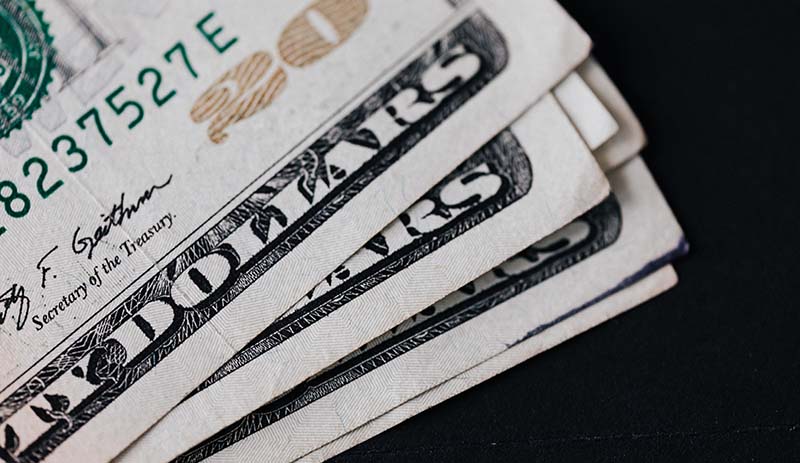How to Get Out of Debt: A Step-by-Step Guide

How to Get Out of Debt
Debt can feel like a heavy burden preventing you from living life to the fullest. If you feel weighed down, know that you can take steps to pay it off and get out from under it. With some strategic planning, consistency, and smart money management, you can become debt-free. Here are effective tips for tackling any type of debt.
Take Inventory of Your Debt
To get a handle on your debt, you need clarity on what you owe. Make a list of all your debts including:
- Credit card balances and interest rates
- Personal, payday, or title loans
- Medical debt
- Student loans
- Back taxes
- Money owed to family and friends
For each debt, include who it’s owed to, the amount owed, minimum monthly payment, interest rate, and due date. Having all this information in one place helps you strategize.
Get Your Credit Report and Score
It’s important to check your credit report from all three credit bureaus. This shows your full credit history including debts, payment history, collections accounts, and court judgments if applicable.
Checking your credit score gives you a benchmark for how past payment behavior has impacted your creditworthiness. As you pay down debts, your score should improve over time.
Trim Expenses and Increase Income
To pay off debt faster, you need to free up as much money as possible each month to put toward. Building a budget can help you see where you can cut back on discretionary spending.
Look for ways to increase income too – pick up side work, sell unused items, ask for a raise at your job. Even an extra $200-300 per month makes a difference. Every dollar you can put toward helps.
Prioritize Debts and Make a Payoff Plan
Paying off high interest, non tax-deductible first usually makes the most financial sense.
Two popular payoff methods are:
Choose the method that resonates with you and make a detailed payoff plan with target dates for each debt. Automate payments to help stick to your plan.
Talk to Your Lenders
Contact all of your lenders to discuss your situation honestly. Ask if they can offer lower interest rates, reduced monthly payments, or other options to make more manageable. This may include:
- Hardship programs
- Deferring payments
- Changing payment due date to align with your pay schedule
- Waiving late fees
- Settling for less than what’s owed
This can help ease the repayment process. Having open communication with lenders is key.
Transfer High Interest Debt to a Lower Rate
For high credit card balances, you can transfer them to a lower interest or even 0% balance transfer card. This reduces interest costs so more of your payment goes to principal. Make sure to pay off the amount within the intro 0% period, usually 12-18 months.
You can also use low interest loans from a credit union to consolidate and lower rates on other debts like payday loans or personal loans from finance companies. The key is the new rate must be lower.
Avoid Taking on New Debt
It might be tempting to take out new credit cards, loans, or financing when paying off debt in order to have access to more money. But this will only exacerbate the payoff process.
Practice saying no to spending temptations and live within your means. Avoid new financing no matter what. Keep funneling all extra income to your current.
Make Lifestyle Changes
Paying off debt requires both short-term sacrifices and adopting long-term lifestyle changes. Here are some ideas:
- Downsize housing or vehicles
- Take public transit to commute
- Limit eating out and entertainment
- Stick to a grocery budget and meal plan
- Have roommates to cut housing costs
- Renegotiate cell phone and internet bills
- Cancel unused subscriptions and memberships
Adopting frugal habits keeps your spending in check while getting out of debt. Think twice before any purchase.
Pick Up Side Work
Even with cutting expenses, your main income may not be enough to pay off debt aggressively. Picking up side hustles gives you more money to put toward debt.
Options include ride share driving, tutoring, freelance writing, web development, pet sitting, personal training, and anything else you can do on the side. The extra income goes directly toward debt payments.
Use Windfalls Wisely
Any financial windfall like a tax refund, work bonus, gift money, or inheritance should go straight toward knocking out your next debt. Avoid the temptation to spend these extra funds.
Having a plan to allocate windfalls to ahead of time ensures you use them wisely. Every bit of extra money helps.
Make Minimum Payments on Time
As you chip away at debts, be sure to always make at least the minimum payment on time each month. Late or missed payments result in penalties, increased interest rates, and damage to your credit.
Automate minimum payments so you never miss one. Paying on-time is crucial, even when paying extra each month.
Avoid Debt Settlement Scams
Many companies claim they can settle your debt for pennies on the dollar. Most of these are scams and will not actually get reduced, instead charging you high fees. Debt settlement should be a last resort option after you have tried to no avail to negotiate directly with lenders.
If considering debt settlement, thoroughly research companies, check reviews from past clients, and ensure they abide by fair collection practices act rules. Understand all fees before signing anything.
Celebrate Milestones
As you pay off each debt, celebrate the milestone! Recognizing your hard work along the way helps you stay motivated. Treat yourself to something affordable like a massage or picnic after each debt payoff.
Visually see your progress by coloring in a debt tracker chart or graph. You’ll gain momentum each time you pay off a debt.
Build Emergency Savings
While getting out of debt, it’s important to also build some savings as a cushion. Having cash reserves for emergencies like job loss or car repairs prevents having to take on more debt.
Try to save $500-1000 at first if possible. Then aim for 3-6 months’ worth of living expenses over time. Savings provides a safety net.
Maintain New Habits For Good
Many people get debt free, only to gradually take on debt again and repeat the cycle.
Avoid debt mind traps – live without credit cards if needed, learn to delay gratification for purchases, practice contentment with what you have. Stay focused on consistent saving and investing for the long-term.
Staying out of debt for good is the ultimate win. Keep living within your means and making smart money choices.
Recap of Ways to Get Out of Debt
Here are effective strategies:
- List all debts and details
- Check credit reports and scores
- Trim expenses and increase income
- Prioritize debts and make a payoff plan
- Contact lenders for relief options
- Transfer high interest to lower rates
- Avoid taking on new
- Make lifestyle changes
- Pick up side work for extra income
- Use windfalls wisely
- Make minimum on-time payments
- Avoid settlement scams
- Celebrate milestones
- Build emergency savings
- Maintain new habits long-term
If you stick to these steps, you can take control of your situation and work your way to freedom. Stay positive, be patient with the process, and focus on consistent progress. You’ve got this!




